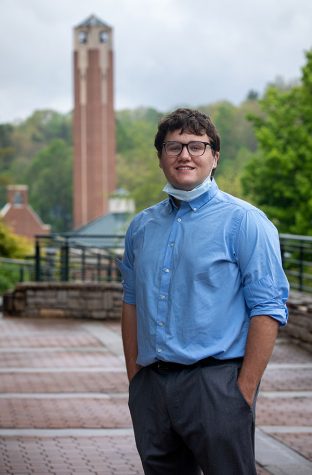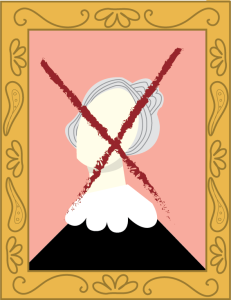App State, AppHealthCare continue building relationship as COVID-19 cases rise
October 18, 2020
At first, COVID-19 was unknown — just a disease that was spreading in China. It soon became clear that the incredibly fast spreading and infectious COVID-19 could pose a problem to a college campus of over 20,000.
Out of over 1,600 COVID-19 cases in Watauga County, over 1,000 of them are related to App State. The majority being in students — over 950.
AppHealthCare reports the largest percentage of cases are in the 18- to 24-year-old age group. According to App State, the average age for students enrolled in the fall 2020 semester is 21.5 years old.
When COVID-19 began spreading to other countries at the beginning of the year, App State officials knew they would need to meet with AppHealthCare to mitigate any future harm to the App State community.
Taylor Rushing, medical director of App State Student Health Services, said meetings surrounding COVID-19 began with AppHealthCare in January, when COVID-19 was identified.
“As the spread widened, those meetings increased, and we now meet daily,” Rushing said.
Those meetings take place every day at 2 p.m. and involve members from AppHealthCare and App State administration.
“Working with the AppHealthCare team has allowed us to consistently inform our campus community, while also offering important, data-driven safety and prevention information,” said Megan Hayes, App State’s chief communications officer.
With over 1,600 cases in Watauga County and over 1,000 at App State alone, those daily meetings are when the groups look at the data and address any challenges that have come up.
Chancellor Sheri Everts said AppHealthCare has made itself available daily in support of App State’s educational mission.
“I appreciate the critical work of our local public health team, which has helped us create a safer campus environment,” Everts said.
Jennifer Greene is the health director at AppHealthCare, which serves Alleghany, Ashe and Watauga counties. She has been with AppHealthCare since 2004 and has served as the health director since December 2017.
Serving in this role during the pandemic has been “intense” for Greene.
“I feel a great deal of responsibility to the community,” Greene said. “You know, all of the community. All the parts of the community to try to keep people healthy and safe.”
A big part of the community — over 20,000 in fact— are the students at App State.
Like every relationship, Greene said there have been challenges — especially during the pandemic. Both AppHealthCare and App State face outside pressures related COVID-19.
Part of the relationship comes from open communication about concerns and actions that need to take place.
“Because of our relationship with the AppHealthCare team, we have a much fuller picture we can use as we make data-driven decisions about health and safety on our campus,” said Jason Marshburn, director of Environmental Safety and Emergency Management.
A key challenge the university and AppHealthCare works together on is contact tracing among students.
Greene said if a student, faculty or staff member can’t be reached by a public health official, the university will step in and help contact that person.
Some of the conversations Greene said take place between AppHealthCare and App State is how to get students to respond to the contact tracing calls. Those who do get called for contact tracing won’t get in trouble, Greene said.
“That’s how we protect the broader campus community and the community here in Boone,” Greene said. “We can’t do contact tracing and all the work that we’re doing without some good partnership with the university.”
The pandemic isn’t the first time AppHealthCare and App State have had to work closely with each other.
“We have a history of working with them on all types of communicable diseases, such as mumps,” said Margaret Bumgarner, administrative director of student health services.
Vice Chancellor for Student Affairs, J.J. Brown said the university has a longstanding relationship with Greene and her team that was built while responding to communicable diseases and other public health challenges over years.
One of those public health challenges occurred right before COVID-19 really started affecting Watauga County when three cases of mumps were confirmed in students living off-campus.
“That’s probably what’s helped us get through this whole pandemic a little easier because we already knew each other,” Greene said. “We already had working relationships and trust for each other before we went into this.”










